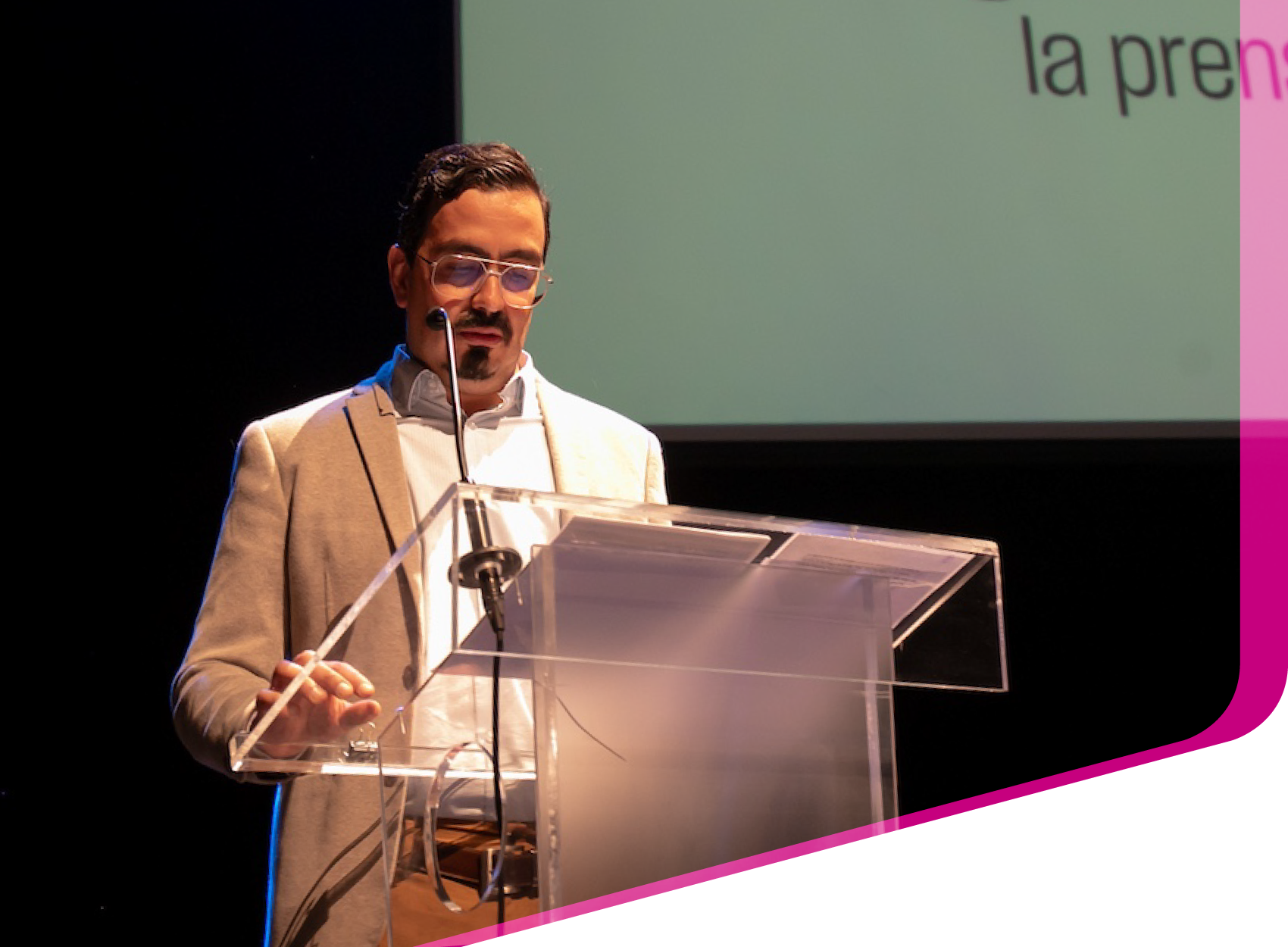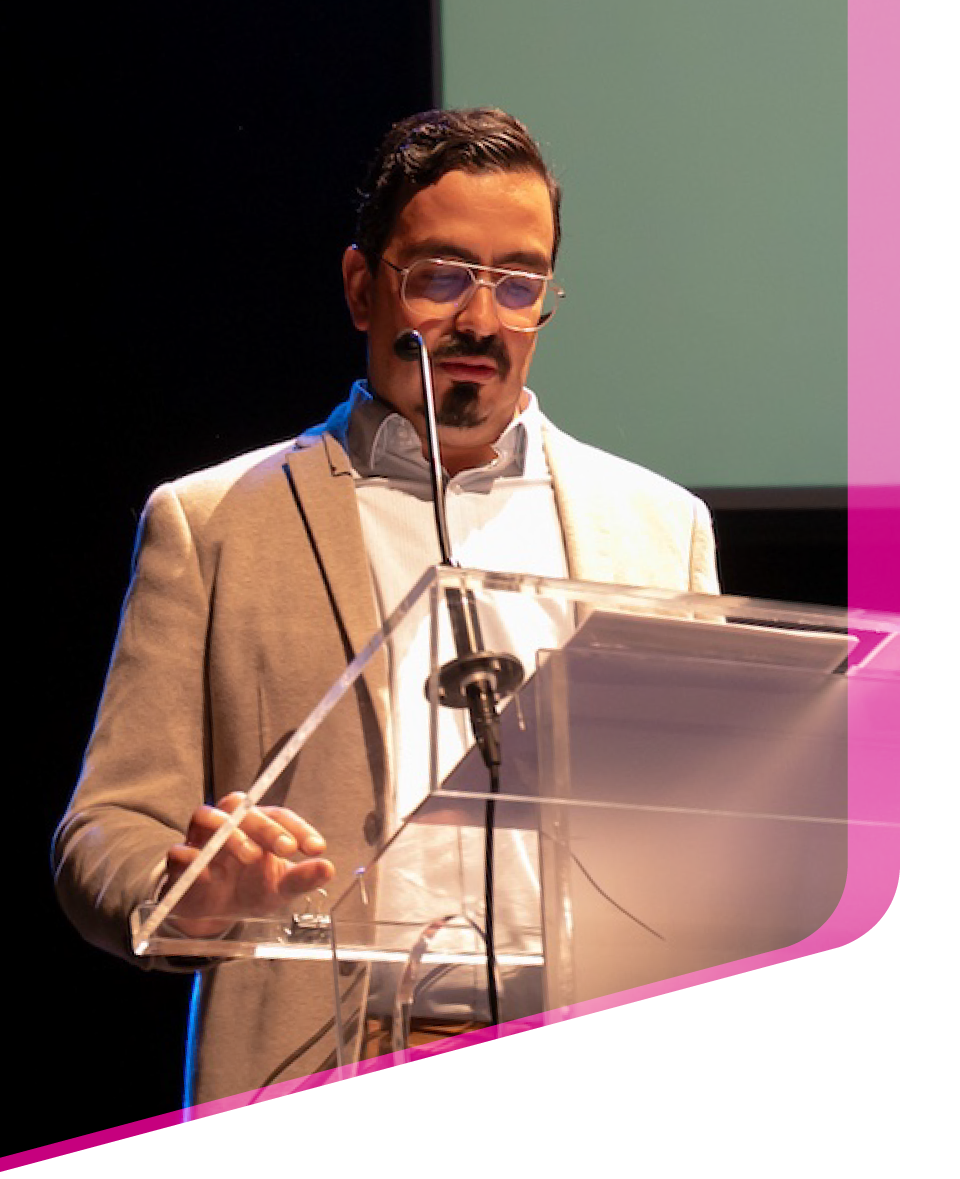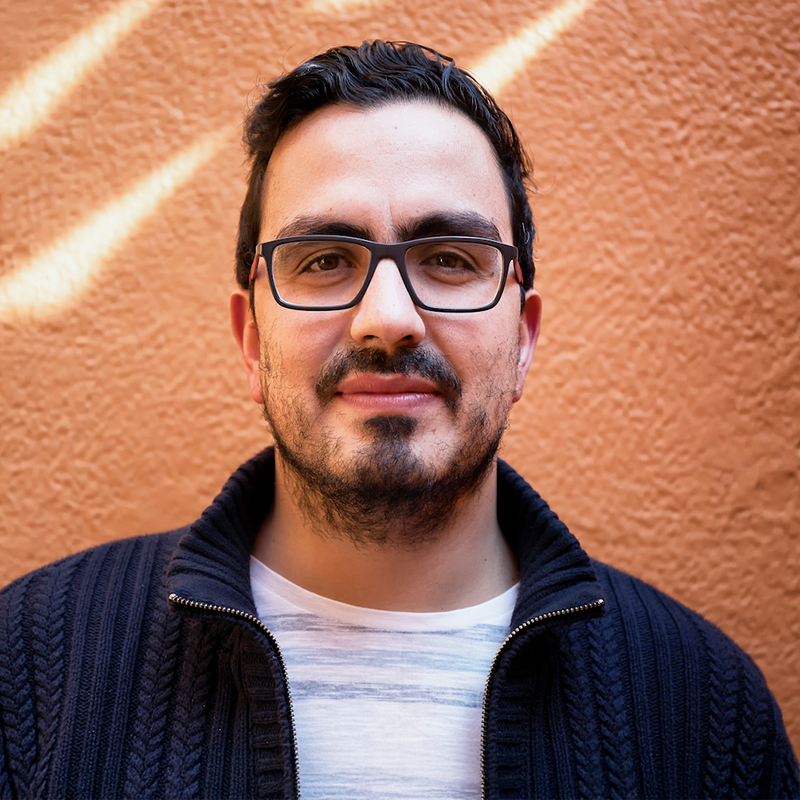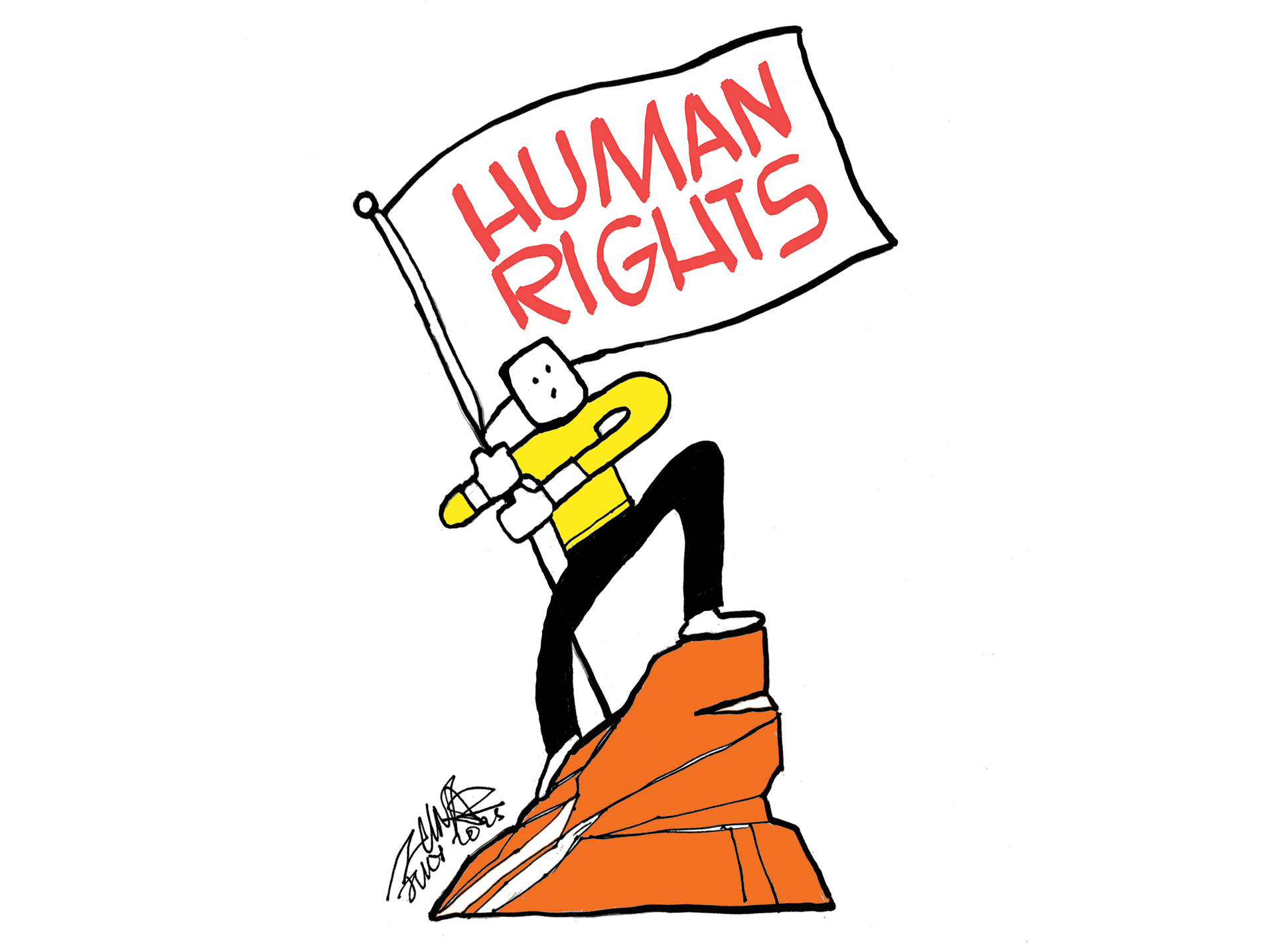
Mexico
Mexico
Mexico
Leopoldo Maldonado
Leopoldo Maldonado
Leopoldo Maldonado
Human rights lawyer
Human rights lawyer
Human rights lawyer

Mexico
Leopoldo Maldonado
Human rights lawyer
“Do not look away from what is happening in Mexico and Latin America. The region shows how quickly populism and authoritarianism can dismantle decades of democratic progress.”

VITA
Leopoldo Maldonado is a Mexican human rights lawyer and the Regional Director of ARTICLE 19 Office for Mexico and Central America. With 20 years of experience, he has led strategic litigation, advocacy, and public policy efforts to protect freedom of expression and access to information across the region. From 2018 to 2019, he served on the advisory council of Mexico’s Federal Protection Mechanism for Human Rights Defenders and Journalists. He has participated in high-level forums at the UN, Organization of American States (OAS), and other international organizations, advocating for stronger protections for journalists and civic space. Maldonado holds a law degree and a master’s degree in human rights, both from the Universidad Iberoamericana. He regularly contributes to public debates in Latin America´s major media outlets and has co-authored multiple reports and articles on freedom of expression, digital rights, and authoritarianism in the region.
Organizations like Article 19 have worked alongside journalists, human rights activists, and various communities in contexts marked by violence and impunity. What story or experience can you share that represents why civil society organizations continue to defend human rights in Mexico?
Unfortunately, in recent years, Mexico has experienced a clear democratic backslide, most visibly in the realm of freedom of expression, a crucial indicator of democratic health. Mexico is currently the most dangerous country for journalists in the Americas and the deadliest in the world outside of active war zones. We have also seen setbacks in many other areas, such as transparency. Institutions responsible for guaranteeing access to information have been dismantled, and attempts have been made to censor dissenting voices on the internet. There are also ongoing attacks from pro-government digital militias targeting critical voices, including ours. Article 19 has had to endure these attacks for a long time due to a great deal of intolerance towards criticism and an attempt to impose a single worldview. For Article 19, which is grounded in democratic values and human rights, all voices must have equal value and the same opportunity to be heard.
What are the pressing obstacles civil society currently faces in Mexico when seeking to guarantee fundamental rights? How do these challenges affect your day-to-day work?
In recent years, we at Article 19 have faced a lot of stigmatization by the government. We have been significantly discredited on the federal government’s public platforms, as well as by local governments. We are also facing increasingly severe restrictions on carrying out our work as civil society organizations, from fiscal areas to broader legal frameworks; the Mexican state is imposing more constraints. The dismantling of the National Institute for Transparency has dealt a serious blow to our ability to investigate and expose abuses. The growing threat posed by a judiciary captured by the ruling party is looming ahead. Judicial independence is essential for the defense of rights, especially since a large part of our work involves strategic litigation to protect freedom of expression. So yes, we face direct attacks, but also broader structural threats: the erosion of checks and balances, the collapse of accountability, and a shrinking civic space. All of this deeply affects our daily work and the future of democracy in Mexico.
Many organizations operate under extreme risk. What collective protection or resilience mechanisms have proven most effective in sustaining the work of human rights defenders like yours in Mexico?
It is clear that attacking the press and organized civil society has become part of the authoritarian playbook. No single organization can withstand this alone. We have found public support from our colleagues and allies to be key mechanisms of resilience. They have raised their voices in our favor, highlighting our work and contributions to democracy and human rights. It is valuable when all organizations take a public stance and support those under attack. Despite the great fear of stigmatization or attacks, the courage of civil society organizations remains crucial to ensuring that we are not overwhelmed by these increasingly autocratic governments.

In the face of a shrinking democratic space and the criminalization of protests in Mexico, what urgent demands are civil society organizations making to the government and the international community?
We call on the international community not to turn a blind eye to Mexico, where the process of democratic erosion is visible on multiple fronts: attacks on judicial independence, the dismantling of autonomous institutions (especially those linked to transparency), attempts to censor the internet, and militarization of the state. We also urge the global community not to be fooled by the idea of a progressive Mexican government. Just because it uses a progressive rhetoric or positions that stand up to the U.S. government, it does not mean that it is not authoritarian. Today’s Mexican government shares many traits with authoritarian leaders such as Donald Trump or Nayib Bukele. Authoritarianism, whether from the left or right, often looks the same in practice. Inside Mexico, a process of democratic erosion is happening that strips us of the basic conditions needed to defend our rights and is undermining the rule of law and democracy itself.
What drives you personally and professionally to continue defending human rights?
I am driven by a deep ethical indignation towards injustice. From a young age, I have been involved in social projects aimed at fighting poverty, supporting migrants, resisting censorship, and defending victims of arbitrary detention and torture. Living in a country so full of systemic injustice, I have always felt a responsibility to act. Now, as a father, that commitment has become even more personal. I want to help build a world where my children can grow up with dignity, justice, and freedom. Perhaps this is a personal or even selfish motivation, but I believe it is a powerful one. Despite everything, I still believe that fighting for a more just and humane society is worth it.
What is your message to civil society representatives around the world?
To civil society actors globally: do not look away from what is happening in Mexico and Latin America. The region shows how quickly populism and authoritarianism can dismantle decades of democratic progress. The current rollback has cost lives and erased the tireless work of countless civil society organizations. But just as authoritarian regimes learn and borrow tactics from each other, so must we. Our resistance strategies, resilience mechanisms, and models of collaboration must also be shared. I believe that it is essential to protect the bare minimum of democracy. In this historic moment, perhaps we are not in a position to push rights much further. However, we must be clear that we have to defend the minimum conditions necessary to prevent our fledgling democracies from dying.
Mexico
